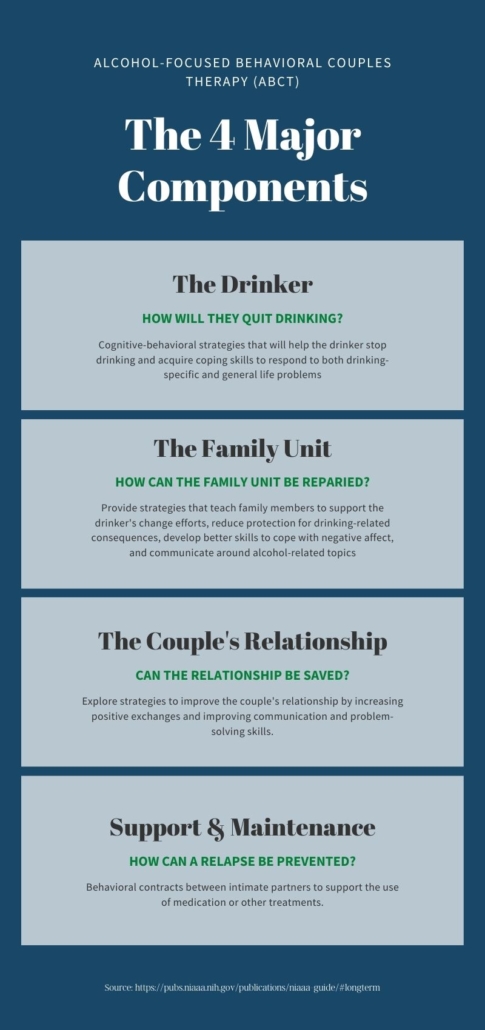Being married to an alcoholic is hard – and making your marriage work can be even harder. Sometimes referred to as an alcoholic marriage, this unhealthy relationship dynamic takes a tremendous emotional, financial, and physical toll on the spouse as well as the drinker. Not only that, but it often causes irreparable harm to the very relationship itself which is why marriages where someone has an alcohol use disorder (AUD) have higher rates of divorce. Recognizing the signs that your spouse’s drinking habits have gone too far could save both the marriage and their life.
10 Struggles of Being Married To An Alcoholic
Alcoholism doesn’t just happen overnight. The process is gradual, so much so that a spouse may not realize that their husband or wife is slowly becoming an alcoholic before their very eyes. Another reason why the development of a drinking problem goes undetected is that the spouse may be an enabler, making excuses for the husband or wife, and is unwilling to recognize the problematic behavior.
1. They’re struggling at work or having difficulty keeping a job
One of the telltale signs of a drinking disorder is when it impedes crucial daily life such as school or going to work. An alcoholics’ work performance is usually the first to suffer, likely from calling out due to hangovers or being intoxicated during working hours. Once terminated, they may have difficulty finding new places of employment or maintaining a job for more than a few days or weeks at a time which can be a massive blow to household finances.
2. They shirk family responsibilities
Marriage is a partnership, and things quickly become problematic when you can no longer rely on your partner. Whether it’s managing the household or rearing children, if your spouse is routinely dropping the ball, it’s a clear sign that their priorities have shifted.
3. Personal hygiene has deteriorated
Alcoholism is a disease that affects the body both physically and psychologically. One of the side effects of which include a growing disinterest in anything that isn’t alcohol. The result of which means that your spouse’s personal hygiene routine has suddenly taken an extended hiatus.
4. They experience rapid mood swings
Alcohol interferes with neurochemicals, the resulting imbalance can result in the formation or aggravation of mental health disorders. Depression and anxiety are common developments in alcoholism and can result in your spouse quickly going between various emotional states.
5. They skip meals
Malnutrition and anemia are commonplace amongst alcoholics, one of the reasons being that they are known to skip meals in lieu of an alcoholic beverage. If your spouse is constantly passing on dinner but has a drink in hand, it could be a sign they’re at the point where alcohol outweighs their basic survival instincts.
6. Unintentional weight changes
Another consequence of a drinking problem can be fluctuations in weight. If they are frequently skipping meals as mentioned above, you might notice them shedding the pounds seemingly without explanation. Conversely, alcohol use disorders can also cause significant weight gain since alcohol is loaded with carbs and sugars that are difficult for the body to burn. Further, alcohol interferes with the digestive system and can leave them with a slower metabolism that also contributes to weight gain.
7. They engage in high-risk behavior
A chronic drinking problem can damage the part of the brain responsible for impulse control and rational decision-making. As such, you may notice your husband or wife engaging in increasingly risky behavior that they normally would not. This might look like gambling, illegal activity, or getting into frequent car accidents. However, this can also take the place of mundane behaviors like deciding to skip work or picking fights.
8. They’ve become physically abusive
The World Health Organization has identified drinking as a major factor in domestic violence against a spouse. This can include physical, psychological, or sexual forms of abuse.
9. They’re abandoned their hobbies
This is a common behavior of addicts. Over time, their thoughts and financial resources are consumed by the source of their addiction as both the psychological and physiological need for alcohol grow stronger. This behavior is concerning if your spouse is constantly canceling plans (especially ones that are part of their routine).
10. Your sex life has taken a hit
It’s not unusual for there to be dry spells in a married couple’s sex life. However, if your intimacy has been lagging for an e
xtended period of time, it could be caused by alcohol’s libido-deflating effect in men. Numerous studies have shown that alcohol can lower testosterone levels.
Protect Your Family, Get Help Today
An alcoholic spouse’s habits have negative repercussions that affect household dynamics, finances, and intimacy. These issues then create a domino effect of instability which affects spouses and their children. This is why alcoholism is considered to be a family disease as its effects extend far beyond the alcohol itself. Not sure how to broach the topic with your alcoholic husband or wife? Start with our addiction intervention guide that can help you navigate this sensitive but necessary subject.
At Level Up Lake Worth, we offer family therapy to help couples and families work together to overcome the struggles listed above. We understand that the impacts of addiction never stop with the addict. Family therapy creates a safe space to talk honestly and for each member of the family to gain what they need to repair the unit as a whole.
